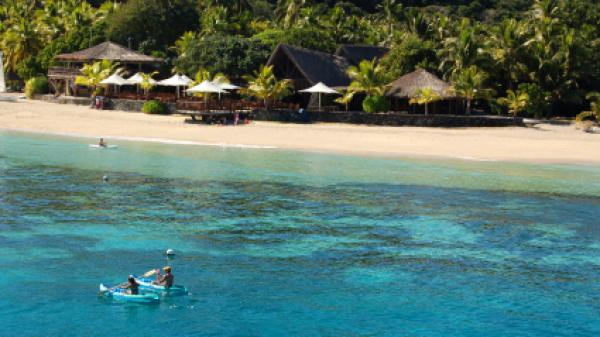Fiji Reignites Daylight Saving Time on November 29
Fiji’s Cabinet has approved for the nation to move the clocks one hour forward on Sunday, November 29, 2009.

Fiji Reignites DST on November 29
©iStockphoto.com/Milan Klusacek
Fiji’s Cabinet has approved for the nation to move the clocks one hour forward in starting daylight saving time (DST) at 2am (02:00) local time on Sunday, November 29, 2009. Fiji’s DST schedule will end at 3am (03:00) on Sunday, April 25, 2010, when the clocks will move back by one hour. Places in Fiji, such as Suva, will follow the DST schedule.
One Hour Ahead
Fiji is 12 hours ahead of Coordinated Universal Time (UTC), or UTC+12, when it does not observe DST. It will move to being on UTC+13 when it observes DST. Fiji’s DST schedule will run from Sunday, November 29, 2009, until Sunday, April 25, 2010.
Why Reintroduce DST in Fiji?
The Fiji Cabinet’s decision to reintroduce DST was based on a submission by the Attorney-General Aiyaz Sayed-Khaiyum. The reasons for bringing back this energy-saving measure in Fiji are:
- The availability of more daylight time for sport, leisure and shopping.
- Workers can spend more quality daylight time in the afternoons and evenings with partners, family, and friends.
- More daylight time in the afternoon could encourage people to engage in healthy activities such as gardening or going for a walk.
Mr Sayed-Khaiyum said that bringing back DST would also benefit the tourism industry, with the tourists being able to make the most out of their visit in Fiji by getting extra daylight time during the afternoons and evenings so they could continue to take part in different activities, such as shopping.
Mr Sayed-Khaiyum said that the DST Act would be amended to allow for DST to be declared for any consecutive period between the start of October and the end of April. He added that Fiji’s new DST schedule would be similar to other countries such as New Zealand, which observe DST for about six months every year.
Recent DST History
Fiji observed DST in the recent past. Fiji, along with its neighboring country Tonga, was one of the first major countries to enter into the year 2000, with the help of its previous DST schedule. This schedule ran on the first Sunday of November to the last Sunday of February for two consecutive years. It was first implemented from Sunday, November 1, 1998, to Sunday, February 28, 1999, and then again from Sunday, November 7, 1999, to Sunday, February 27, 2000. The clocks moved one hour ahead from 2am (02:00) to 3am (03:00) local time when DST started and then shifted one hour back from 3am (03:00) to 2am (02:00) local time when the schedule ended.
Mr Sayed-Khaiyum said that the DST implementation in 1998 and 1999 received encouraging feedback from people and the business community. “In 1999, the Ministry of Labour reported that there was an overall increase in economic activity and productive work as a result of daylight saving,” he said.
